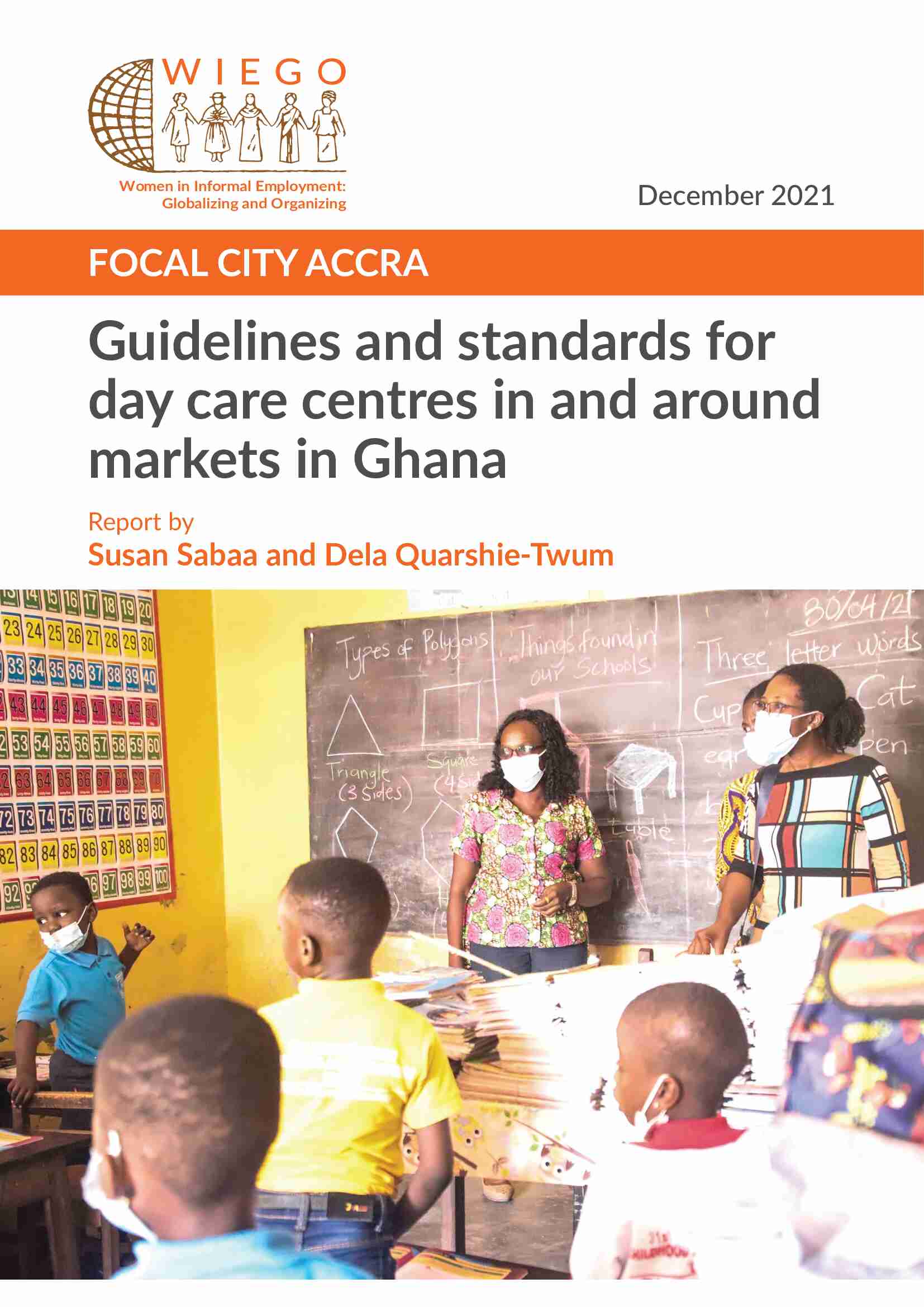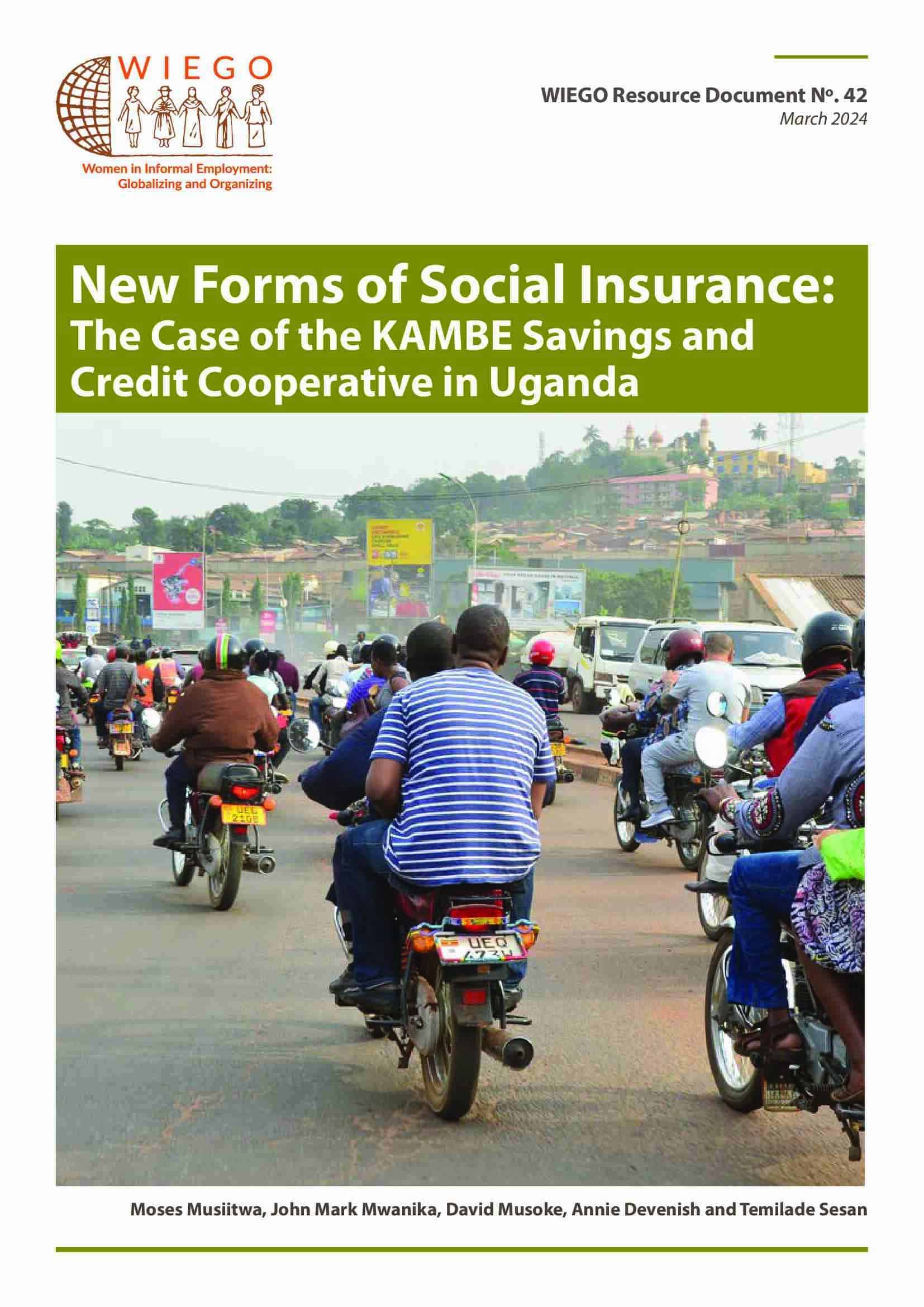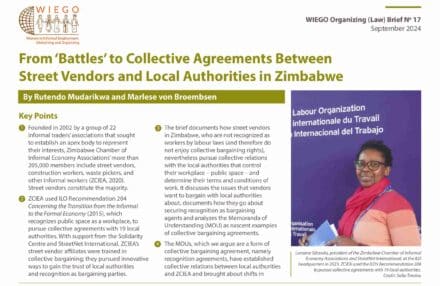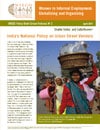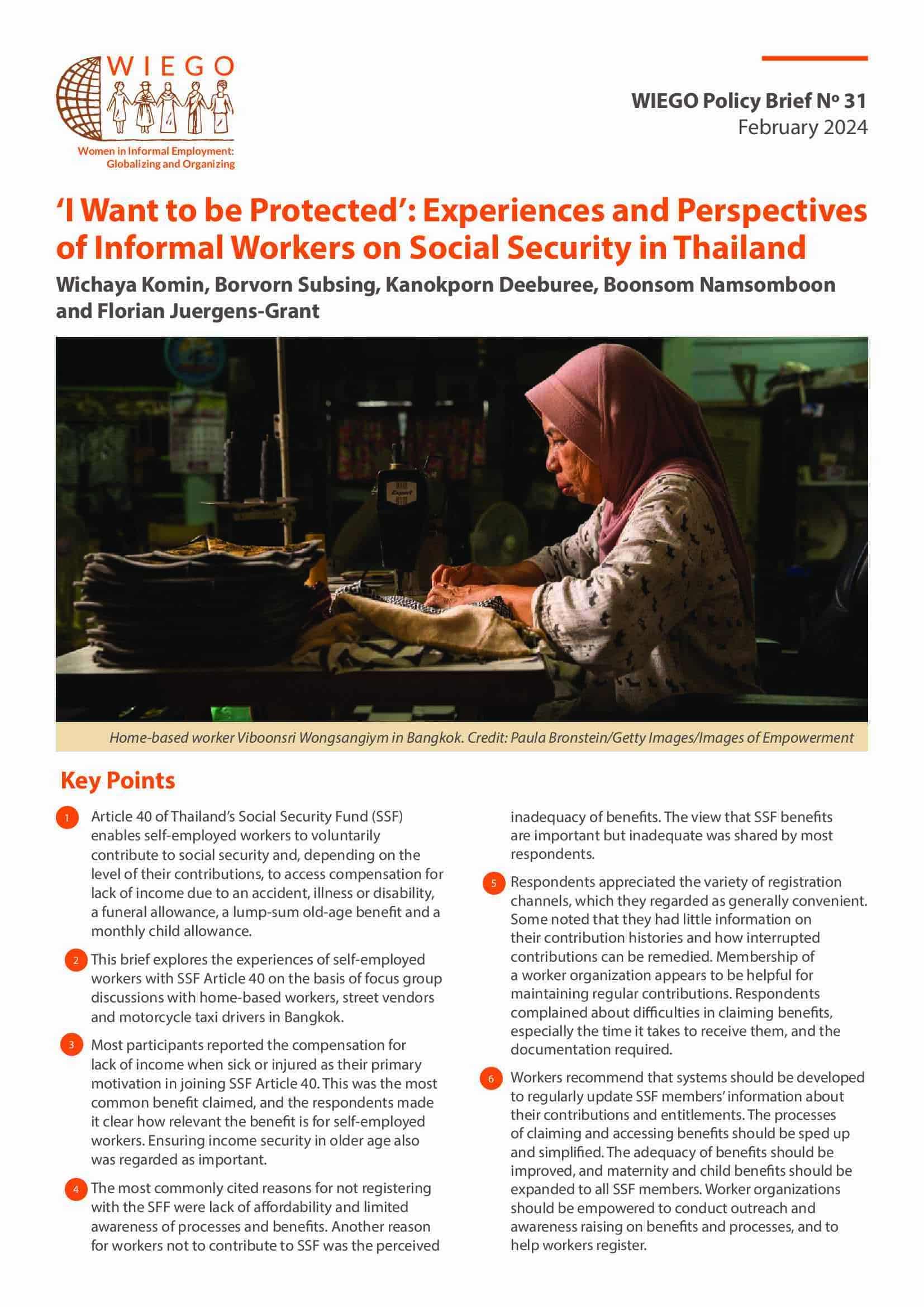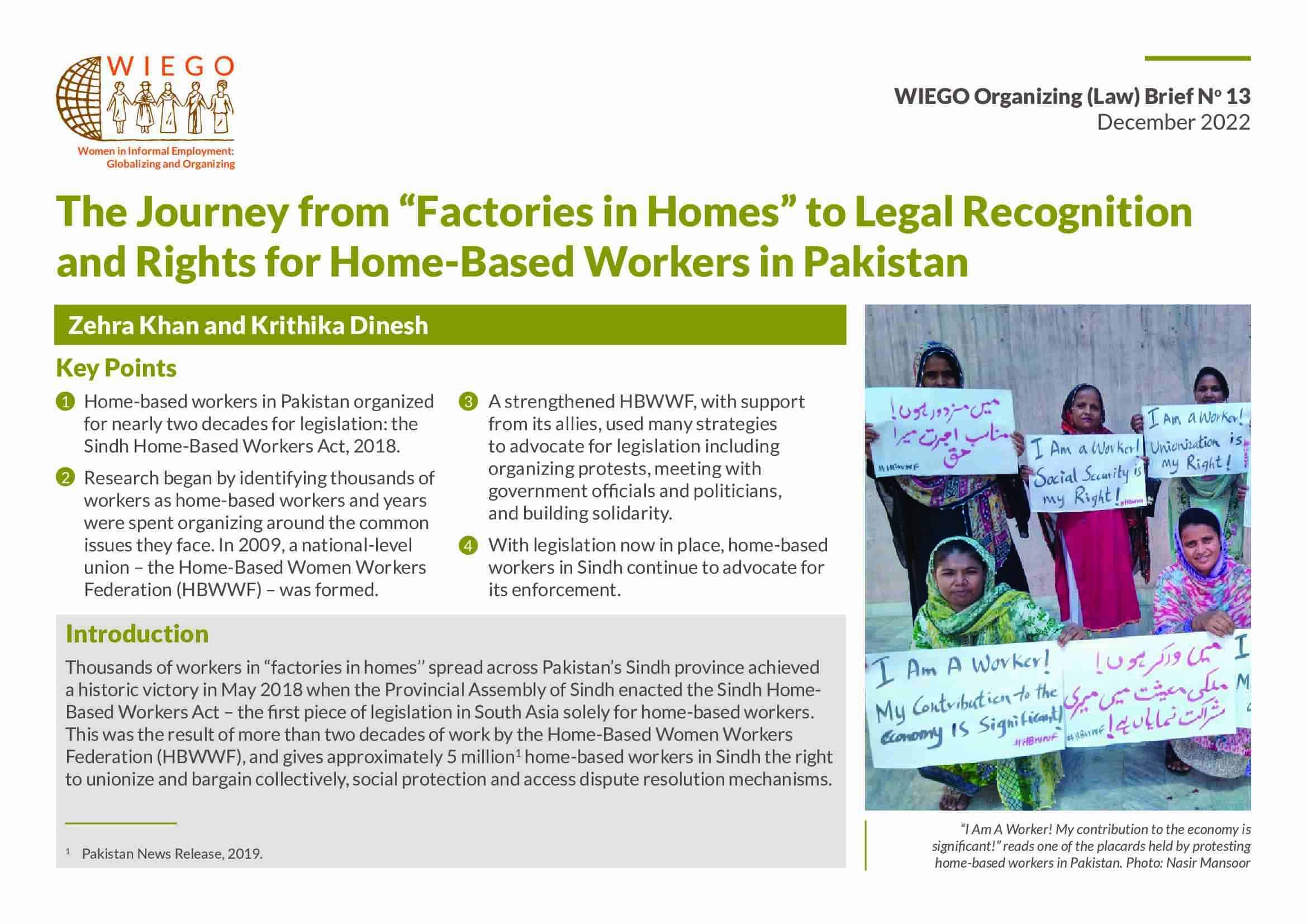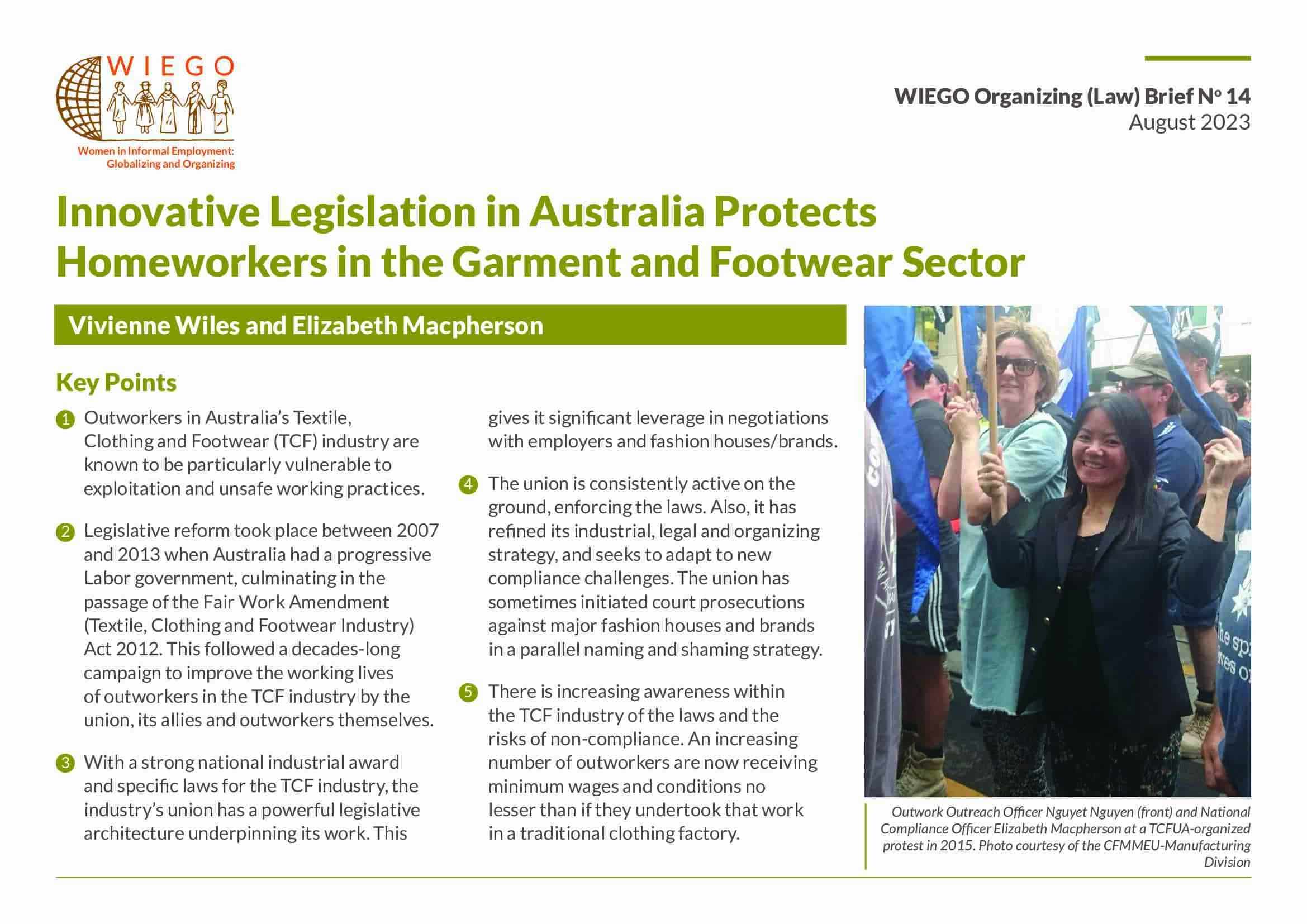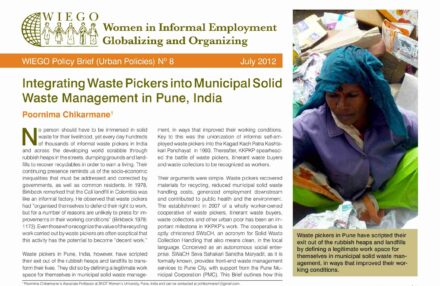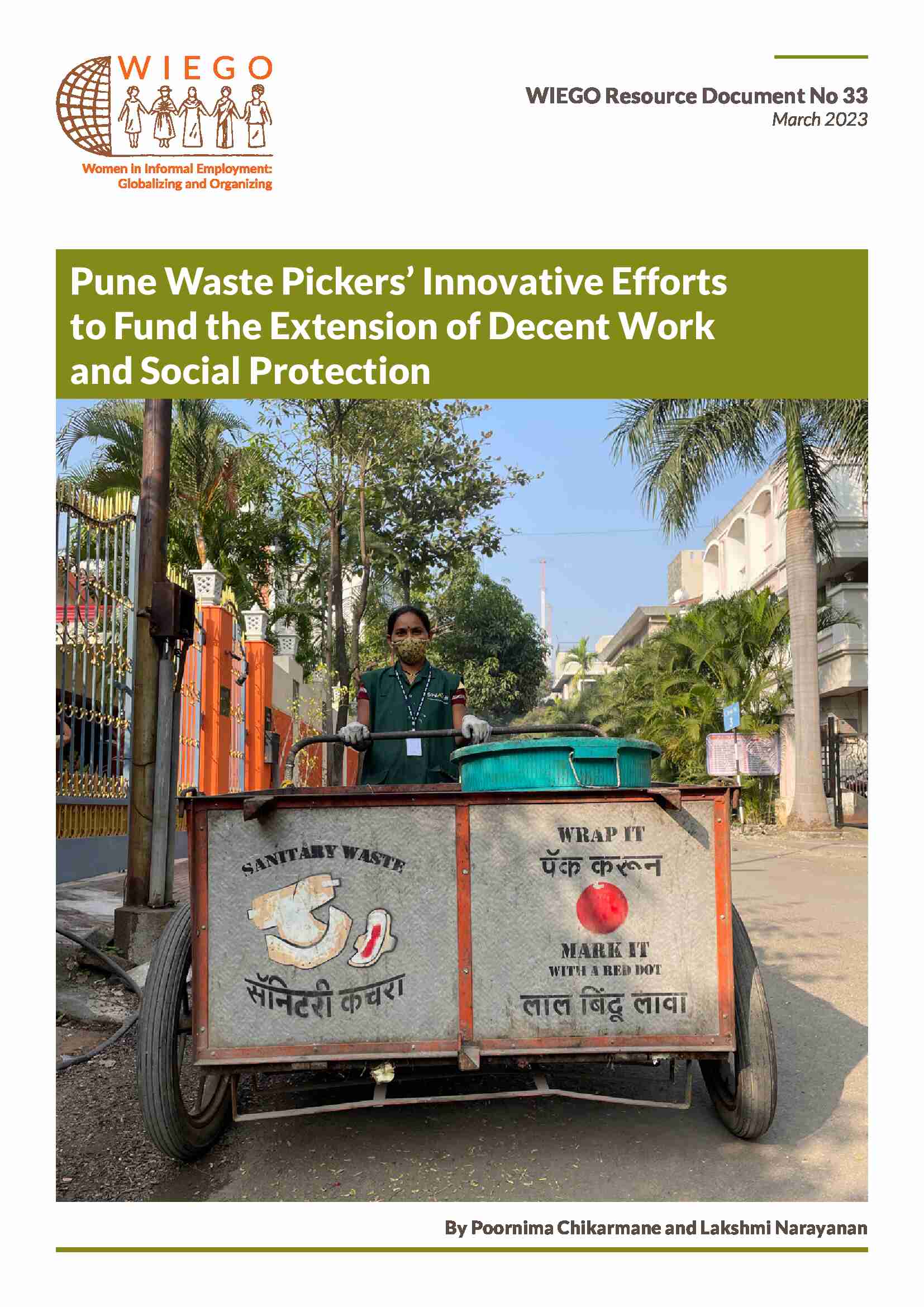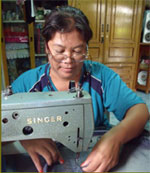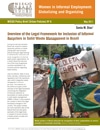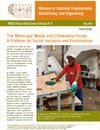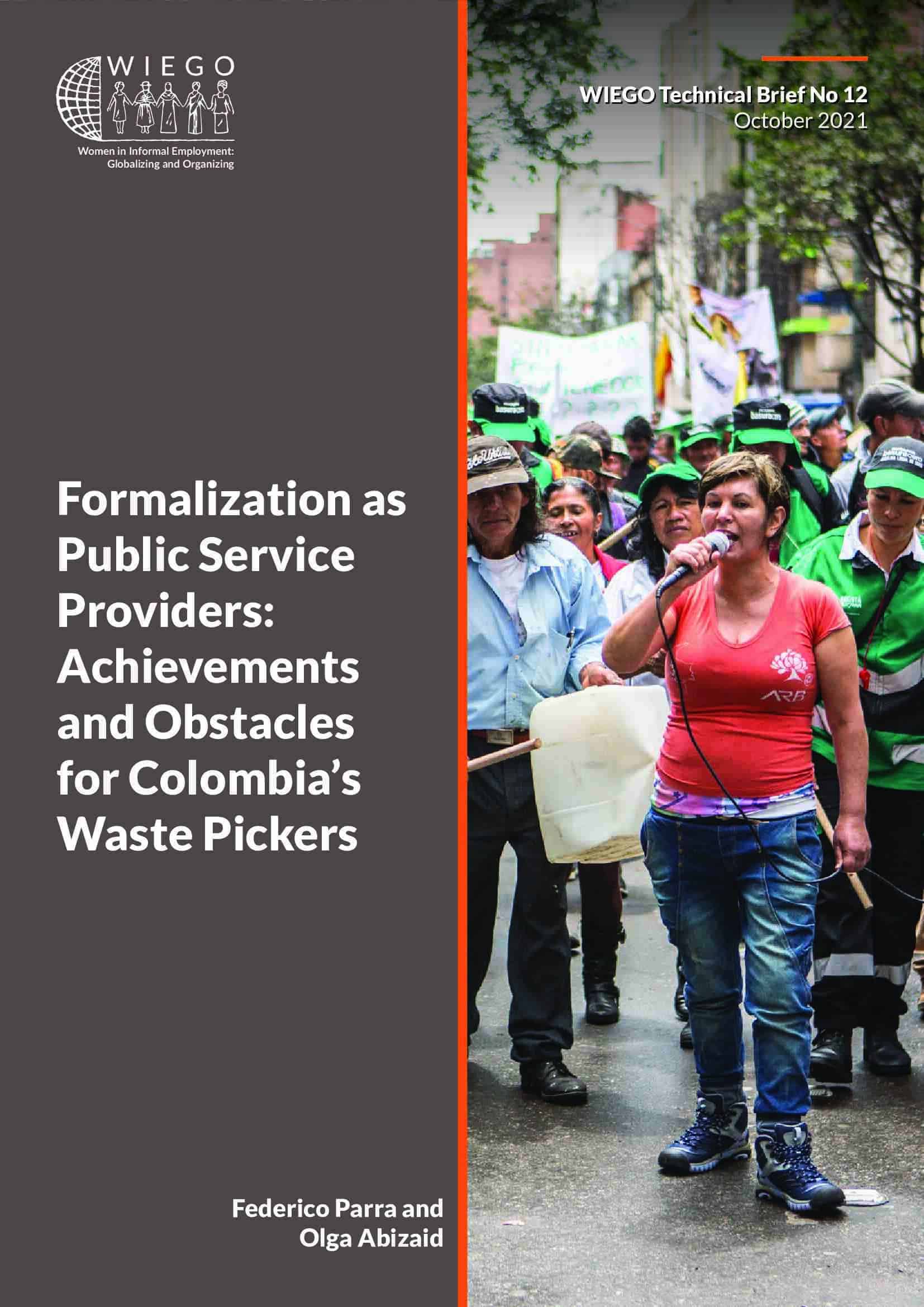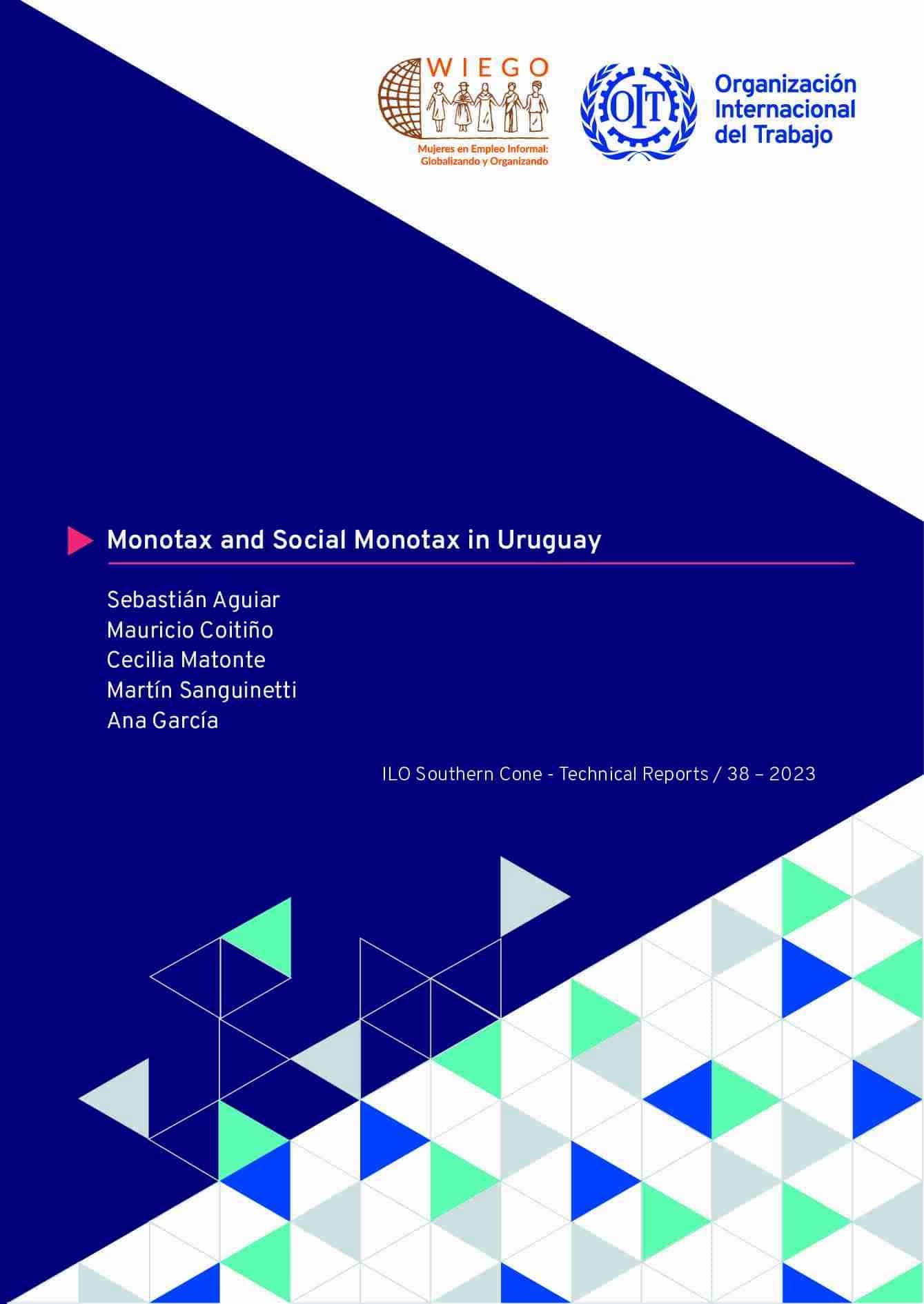WIEGO documents recent innovations and good practices to show what’s working and what others can learn from these experiences.
Recent Innovations
Good PracticesAround the world, workers and government officials are working together to implement laws, policies and practices which aim to protect the rights and improve the working conditions of workers in informal employment.
Africa
-
Ahead of the revision of Ghana’s Early Childhood Care Development (ECCD) Policy, an evaluation of the Policy revealed a bias towards formal sector service provision, and only made generic provision for services in the informal sector. The review also identified that the ECCD did not adequately address the service needs of female Caregivers and those with limited means, creating inequities. Given that over 91% of women workers in Ghana are in informal employment, it presented a major policy gap.
As an input to the ECCD Policy revision, a Reference Group composed of parents of children in market-based day care centres, representatives of informal trade organisations, Child Care Workers, government officials and other ECCD experts collaboratively prepared guidelines and standards for day-care centres in and around markets in Ghana. Drawing on laws, policies, and standards issued by governments, non-governmental and international organizations, as well as broader consultations with women informal traders, and other members of civil society, the guidelines include guidance on governance structures, financing, building considerations and administrative procedures for childcare centres in markets. In many countries, market trade and street vending is a major source of employment for women so these guidelines can serve as a model to other national and municipal authorities who want to support women workers and their children.
-
The experience of the KAMBE SACCO highlights the importance of savings as a safety net for workers in informal employment in times of emergency. During Uganda’s COVID-19 lockdown, with no other support available, two-thirds of the KAMBE SACCO’s members withdrew their savings from the Cooperative, most of which was used to cover essential expenses like food to feed families. This was a lifesaver for many members through the pandemic, in a context where boda-boda riders were unable to go out and earn a living due to lockdown restrictions.
-
The Zimbabwe Chamber of Informal Economy Associations (ZCIEA) used ILO Recommendation 204 Concerning the Transition from the Informal to the Formal Economy to negotiate with local authorities — eventually signing 19 memoranda of understanding (MOU) in municipalities across the country. Although the MOUs are non-binding, they demonstrate the creative strategies street vendors use to establish collective relations with local authorities. In some cases, they’ve improved ZCIEA’s participation in council meetings, consultation on issues affecting vendors and recognition as a legitimate representative of vendor issues.
Asia & the Pacific
-
India’s Parliament passed the National Policy on Street Vendors in early 2004 and later – by order of the Supreme Court – developed and adopted the Street Vendors (Protection of Livelihood and Regulation of Street Vending) Act in 2014. India was the first country to pass progressive, centralized legislation relating to street vending. Also known as the Street Vendors Act, it recognizes the positive role of vendors in cities, identifies the need to protect their rights and livelihoods and details an innovative and participatory framework for the planning and ongoing management of vending via Town Vending Committees (the Act also stipulates that at least 40% of the Committee representatives be street vendors).
-
Article 40 of Thailand’s Social Security Fund allows self-employed workers to voluntarily contribute to social security and, depending on the level of their contributions, to access compensation for lack of income due to an accident, illness or disability, a funeral allowance, a lump-sum old-age benefit and a monthly child allowance. Although not all workers view the scheme as accessible or adequate in terms of benefits, registration under Article 40 increased almost threefold between 2012 and 2020, and participants interviewed in 2023 said that compensation for lost income when sick or injured and income security in old age motivated them to join. As a result of persistent advocacy of Thai MBOs, the Thai government matches workers’ contributions by around 50%, which helps improve workers’ savings in the scheme and incentivises regular contributions.
-
Thousands of workers in “factories in homes’’ spread across Pakistan’s Sindh province achieved a historic victory in May 2018 when the Provincial Assembly of Sindh enacted the Sindh HomeBased Workers Act – the first piece of legislation in South Asia solely for home-based workers. This was the result of more than two decades of work by the Home-Based Women Workers Federation (HBWWF), and gives approximately 5 million home-based workers in Sindh the right to unionize and bargain collectively, social protection and access dispute resolution mechanisms.
-
Outworkers – otherwise known as homeworkers – in Australia’s Textile, Clothing and Footwear (TCF) industry are a mostly female migrant workforce that operated at the end of complex supply chains with few protections. Following a decades-long campaign, Australia went through a legislative reform process, which culminated in the Fair Work Amendment (Textile, Clothing and Footwear Industry) Act 2012. The Act provides powerful legislative architecture for the industry’s union. It deems contract outworkers to be employees, imposes reporting obligations on companies, and expands unions’ right-of-entry to workplaces.
-
SWaCH in Pune, India, is a worker-owned cooperative born out of the successful struggles of KKPKP, a trade union of 8,000 waste pickers. Through a Memorandum of Understanding with the Pune Municipal Corporation, SWaCH members provide door-to-door waste collection to over 810,000 homes, offices and shops in the city. They are paid for their services by residents through a user fee and are accountable to the residents they serve as well as the municipality. As part of the agreement, the Pune Municipal Corporation has committed to co-finance a range of welfare benefits for the city’s waste pickers, including medical insurance, as well as life, accident and disability insurance. They also sell the recyclable materials they collect. The partnership is bolstered by an open channel of dialogue between SWaCH and the local government. The system has had a transformative impact on the city, the environment and, on the lives of the women waste pickers now have more regular and reliable incomes and Pune reportedly has one of the highest rates of segregation and recycling in the country.
-
HomeNet Thailand, with support from WIEGO and other partners, campaigned for more than a decade to win legislative protection for homeworkers. Both the Homeworkers Protection Act B.E.2553 and a social protection policy came into force in 2011. The law mandates fair wages – including equal pay for men and women doing the same job – be paid to workers hired to complete work at home for an industrial enterprise. It also obliges the hirer to provide a contract, to ensure occupational health and safety, and to establish a committee that provides access to the courts in labour disputes and gives women a place at the decision-making table.
Latin America
-
During the last two decades, Brazil has moved to replace repressive policies on waste picking with new inclusive policies that give legal backing to redistributive measures and social recognition of informal waste picker organizations. As a result, Brazil has become one of the most progressive countries worldwide in its inclusive policies regarding waste pickers. The existence of a body of legislation promoting inclusivity does not guarantee that solid waste management practices in all cities follow the rule of law. However, this body of legislation does indicate that waste pickers have considerable public visibility and recognition.
-
The Municipal Waste and Citizenship Forum of Belo Horizonte (the Fórum Municipal Lixo e Cidadania de Belo Horizonte or FMLC BH) was created in 2003 as a participatory public platform to discuss the management of solid waste. Composed of waste picker organizations and cooperatives, government entities and non-governmental organizations, the forum developed guidelines for integrating waste pickers in the city’s recycling scheme, and helped channel technical and financial support to waste picker organizations for capacity building, equipment and infrastructure. In 2023, the forum signed a letter of commitment with WIEGO to work on climate change issues. Since then, it has established a climate change working group which is overseeing efforts by the municipality and other actors to map climate vulnerability, calculating waste pickers contribution to greenhouse gas emissions and engaging in national efforts to develop a climate mitigation and adaptation plan.
-
One of the key advances in Solid Waste Management in Brazil which impacts waste pickers was the approval, in 2010, of Law #12305 that instituted the National Solid Waste Management Policy (PNRS for its acronym in Portuguese). This law represented a victory for the sanitation sector and waste pickers in many ways. The PNRS provides recognition of waste pickers’ role in solid waste management and outlines the concept of “shared responsibility” for collection and disposal of solid wastes generated by industrial and commercial sectors. The PNRS contains a provision on extended producer responsibility, locally referred to as the “reverse logistics system”. This provision not only recognizes the role of waste picker cooperatives but it also states that corporations, specifically packaging industries, should integrate cooperatives in their reverse logistics systems.
-
After years of advocacy by the Asociación de Recicladores de Bogotá (ARB) and the Asociación Nacional de Recicladores (ANR), the Constitutional Court of Colombia published a series of rulings that Bogota’s waste pickers must be included in municipal sanitation planning. These rulings establish the recognition of waste pickers, their role in the recycling value chain and their status as service providers. This recognition has given waste picker organizations the right to be paid for the materials they recover, collect and transport, in addition to the proceeds from the sale of recovered materials. Although there have been challenges as well as achievements in implementation, as of 2019, 94 municipalities in Colombia had at least one waste picker organization providing the public service of recycling.
-
Uruguay’s monotax scheme presents an innovative example of an approach to extend basic social protection to self-employed workers with low earnings. The scheme creates a regime of simplified and subsidized tax and social insurance contributions that entitle workers to retirement maternity and sickness benefits, and, with an extra contribution, health care. The monotox was introduced in 2001 and expanded through the social monotax in 2011, which further reduces contributions for low-income workers. The scheme reaches an estimated 40% of own account workers and is understood to be a contributor to the reduction of informal employment in Uruguay from 43% of total employment in 2001 to 21.5% in 2022. A 2024 study finds that registrants both value the social protection benefits provided through the monotax scheme, as well as improved access to markets and ‘peace of mind’ with regards to inspections.
